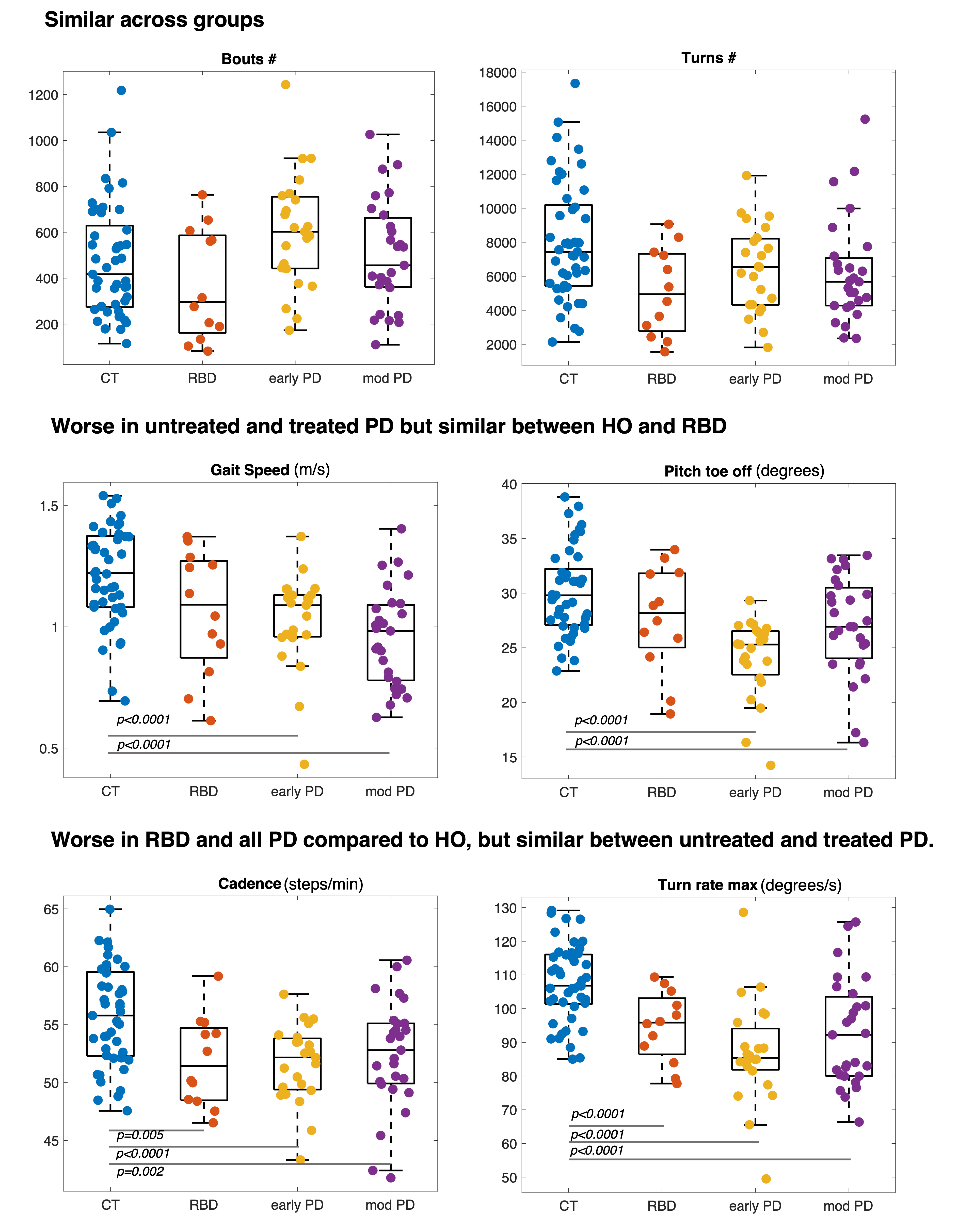Category: Technology
Objective: To compare gait and turning quality during daily life in older adults, people with Rapid Eye Movement (REM) sleep behavior disorder (RBD) and people with early and moderate Parkinson disease (PD).
Background: Gait and turning are impaired in the majority of older people, especially those with neurological degeneration such as parkinsonism. Little is known about the subtle mobility problems in prodromal PD, such RBD and early, untreated PD. Objective measures of gait and turning in daily life could be extremely valuable as early biomarkers, because individuals with RBD and untreated PD often have subtle changes in mobility that go clinically unrecognized and have not been systematically characterized.
Method: This is a cross-sectional analysis of healthy older individuals HO, (N=45, age:mean(SD),65(10) yrs old), individuals with RBD (N=12, age 64.2(9)), untreated PD (N=23, age: 69.2(6)) and moderate PD, On levodopa medication (N=27, age 68(7)). Gait and turning characteristics were collected using two inertial sensors placed on the feet and one on the waist across 7 days of daily living. Linear models were used to investigate differences among groups (p<0.05) and post-hoc comparisons between groups were made with a significance level of 0.01.
Results: Pace aspects of gait (cadence, stride duration) and gait stability (double-support time) progressively worsen from HO to RBD to untreated PD. Gait variability (stride length CV, stride duration CV) and turning variability, although worse in moderate PD, were similar across HO, RBD and early PD (p>0.01). Average gait speed, foot pitch angle at heel strike, # steps per turn, and turning duration were worse in people with untreated PD compared to HO, however, similar in HO and RBD. Although quantity of gait and turning were similar across groups (p>0.01), the median number of strides per gait bout was fewer in moderate PD compared HO (p<0.01).
Conclusion: Changes in gait cadence, double-support time and turning speed, measured passively during daily life, are among the earliest signs of parkinsonian neurodegeneration. These early changes in gait and turning could represent important markers of phenoconversion to evaluate early interventions.
Figure 1
To cite this abstract in AMA style:
M. Mancini, V. Shah, P. Burgos, P. Carlson-Kuhta, L. Talman, M. Lim, J. Quinn, F. Horak. Gait and turning during daily life across the spectrum of normal, prodromal, early and moderate Parkinson’s disease [abstract]. Mov Disord. 2024; 39 (suppl 1). https://www.mdsabstracts.org/abstract/gait-and-turning-during-daily-life-across-the-spectrum-of-normal-prodromal-early-and-moderate-parkinsons-disease/. Accessed December 28, 2025.« Back to 2024 International Congress
MDS Abstracts - https://www.mdsabstracts.org/abstract/gait-and-turning-during-daily-life-across-the-spectrum-of-normal-prodromal-early-and-moderate-parkinsons-disease/

